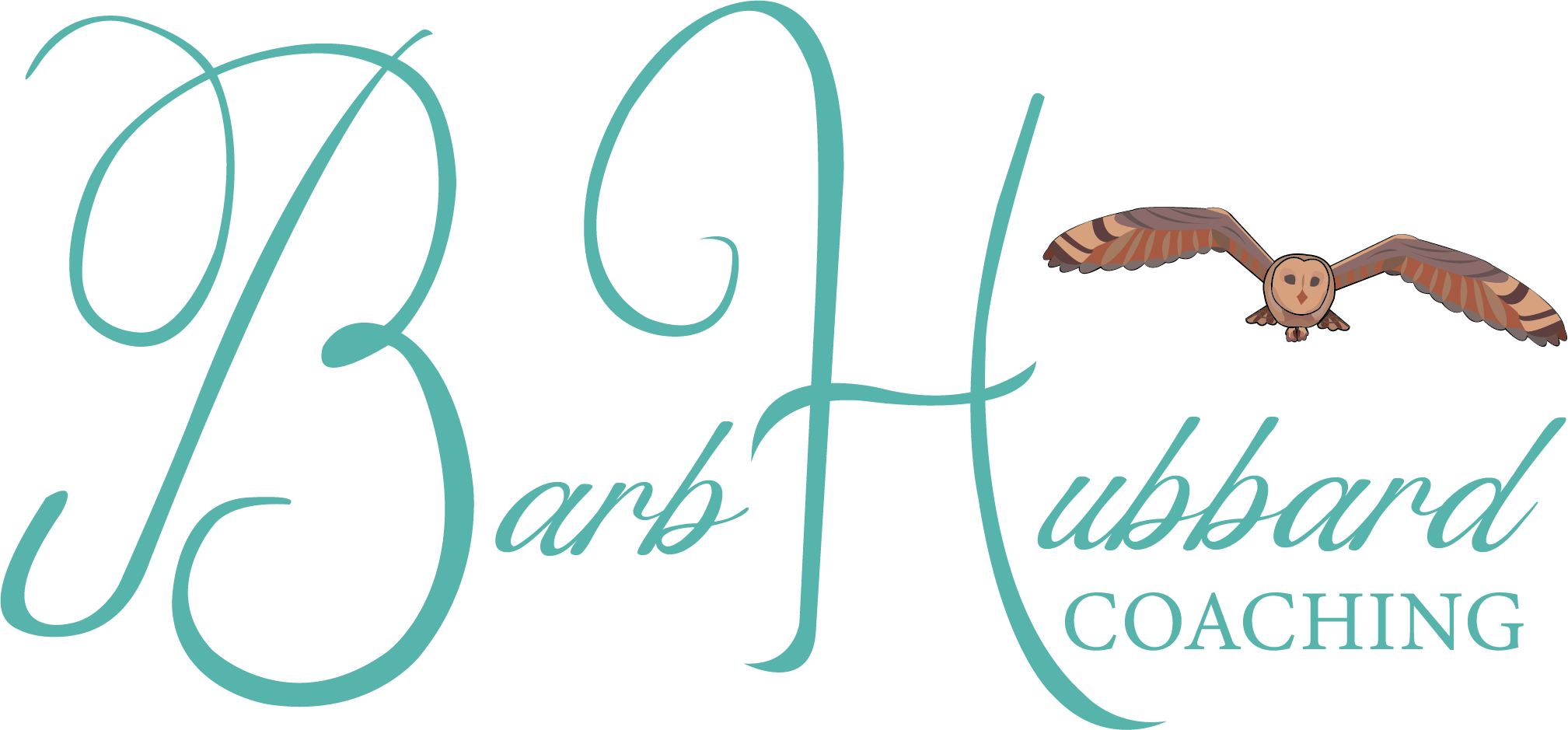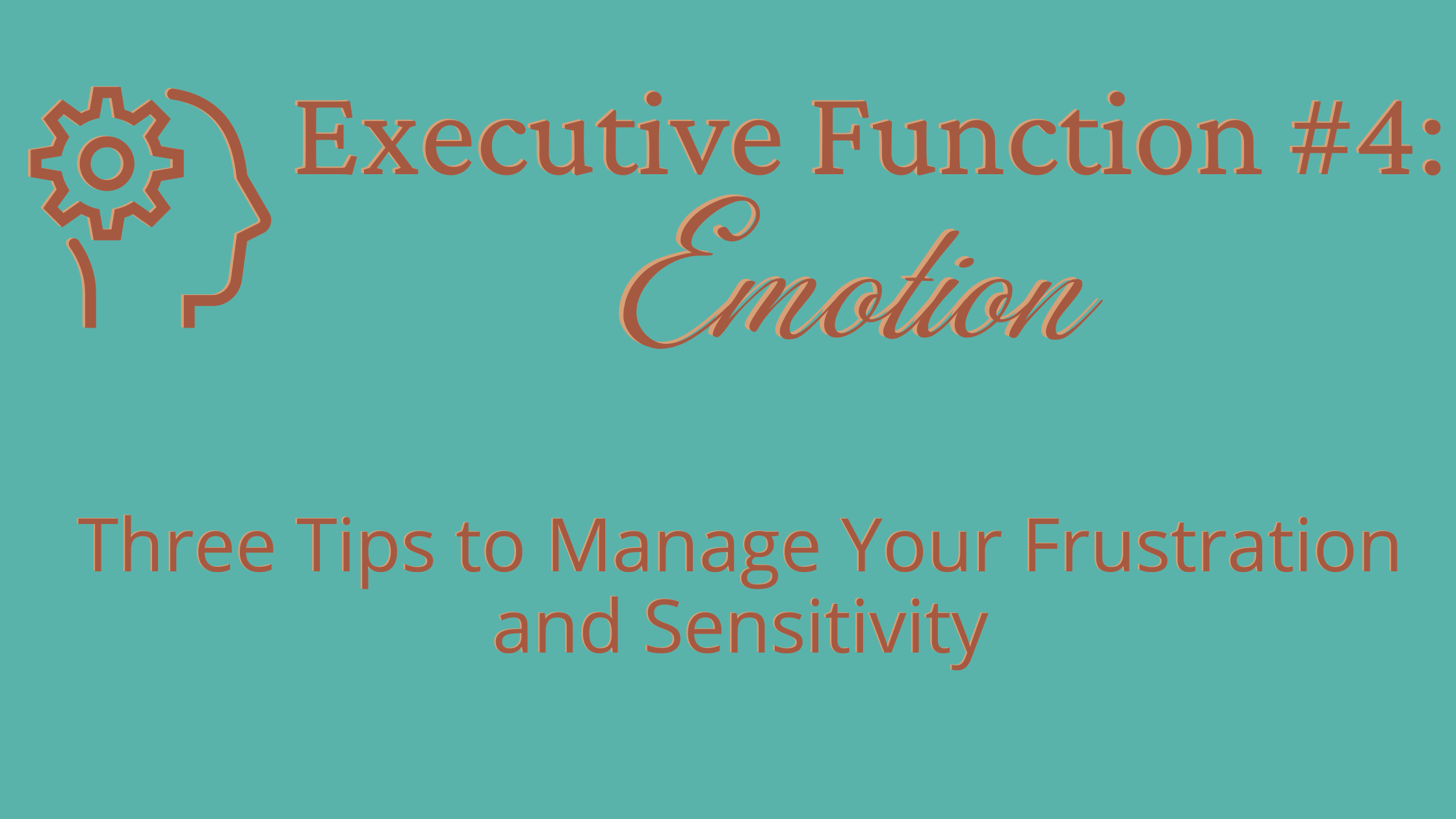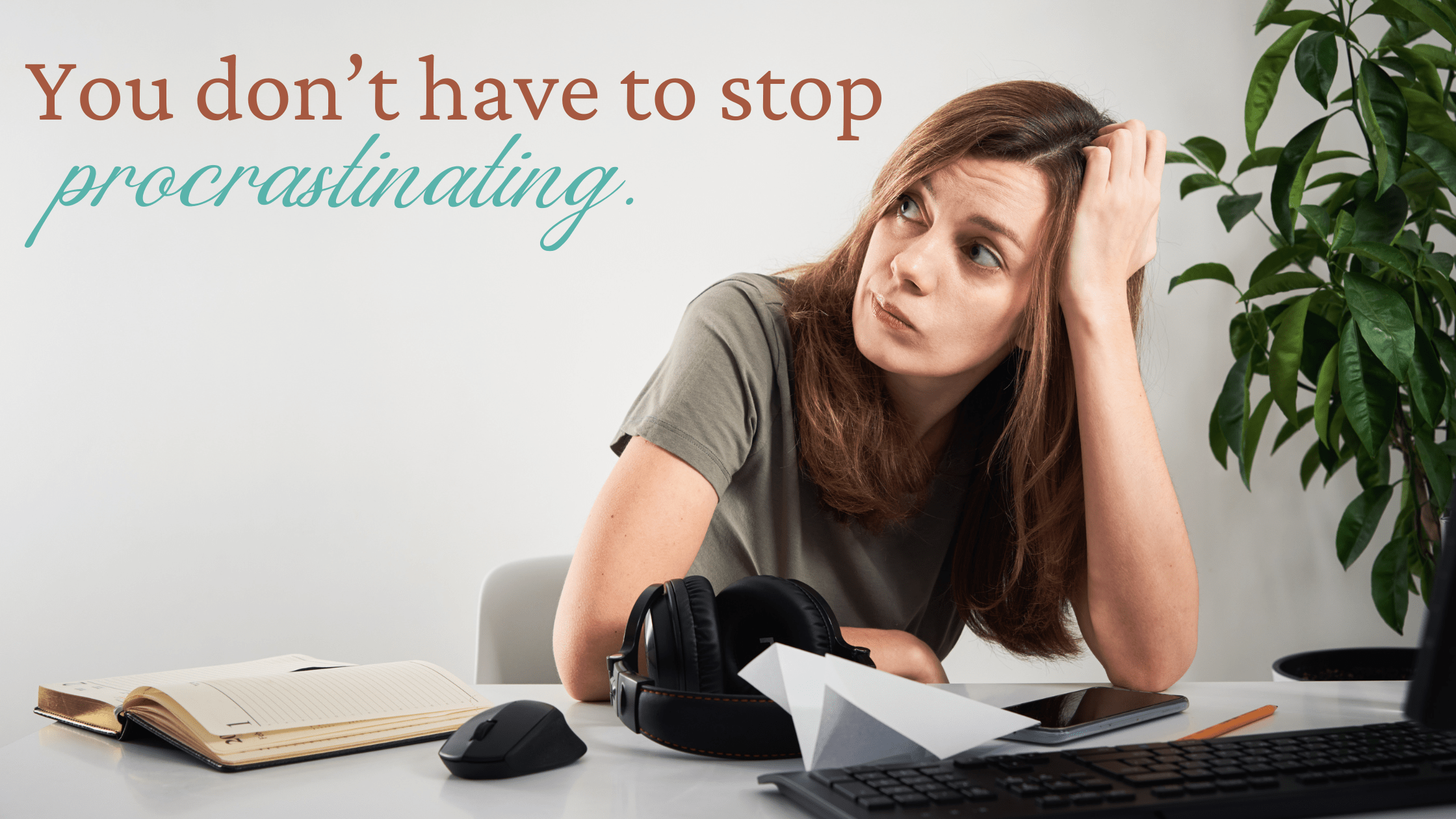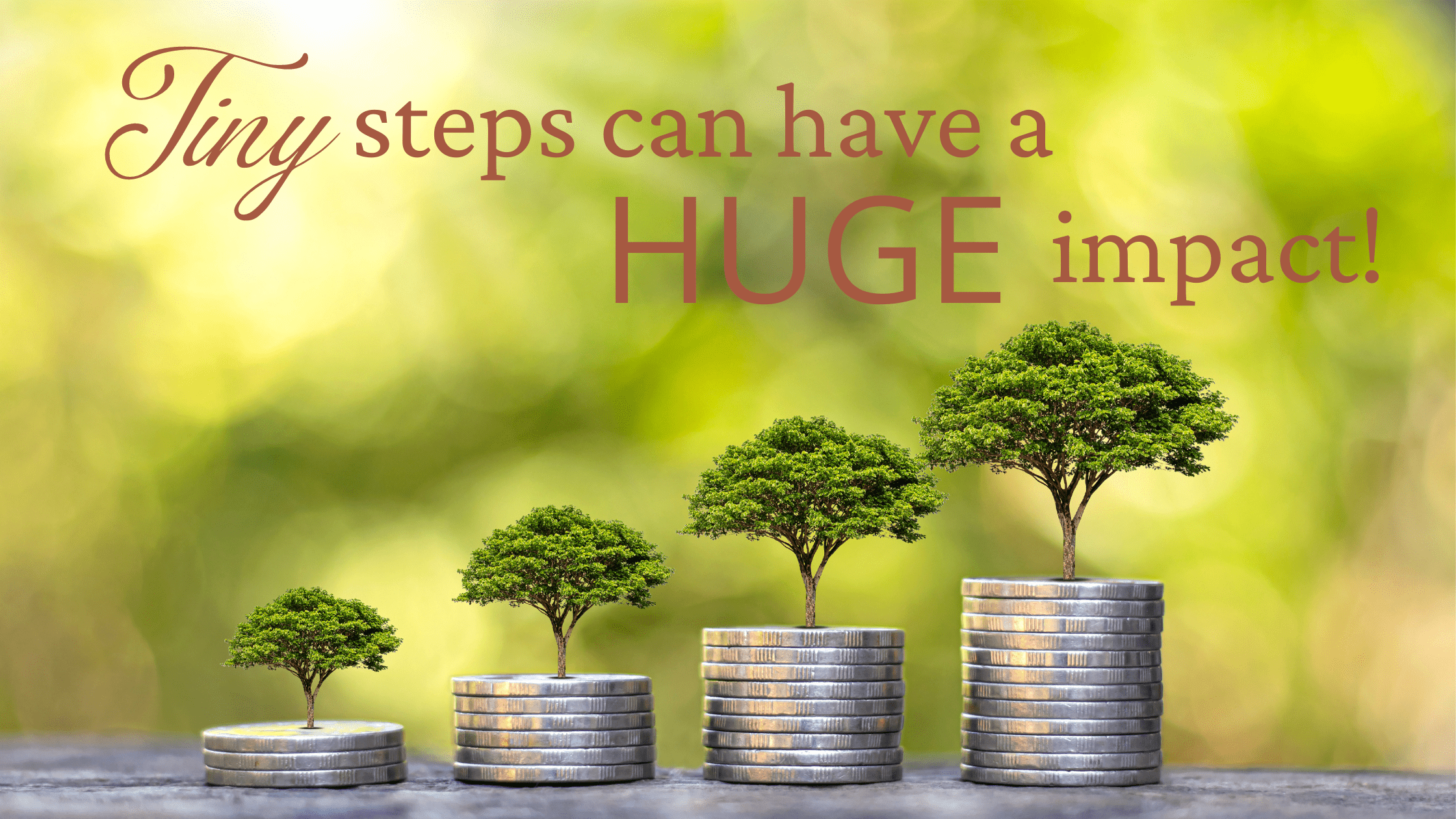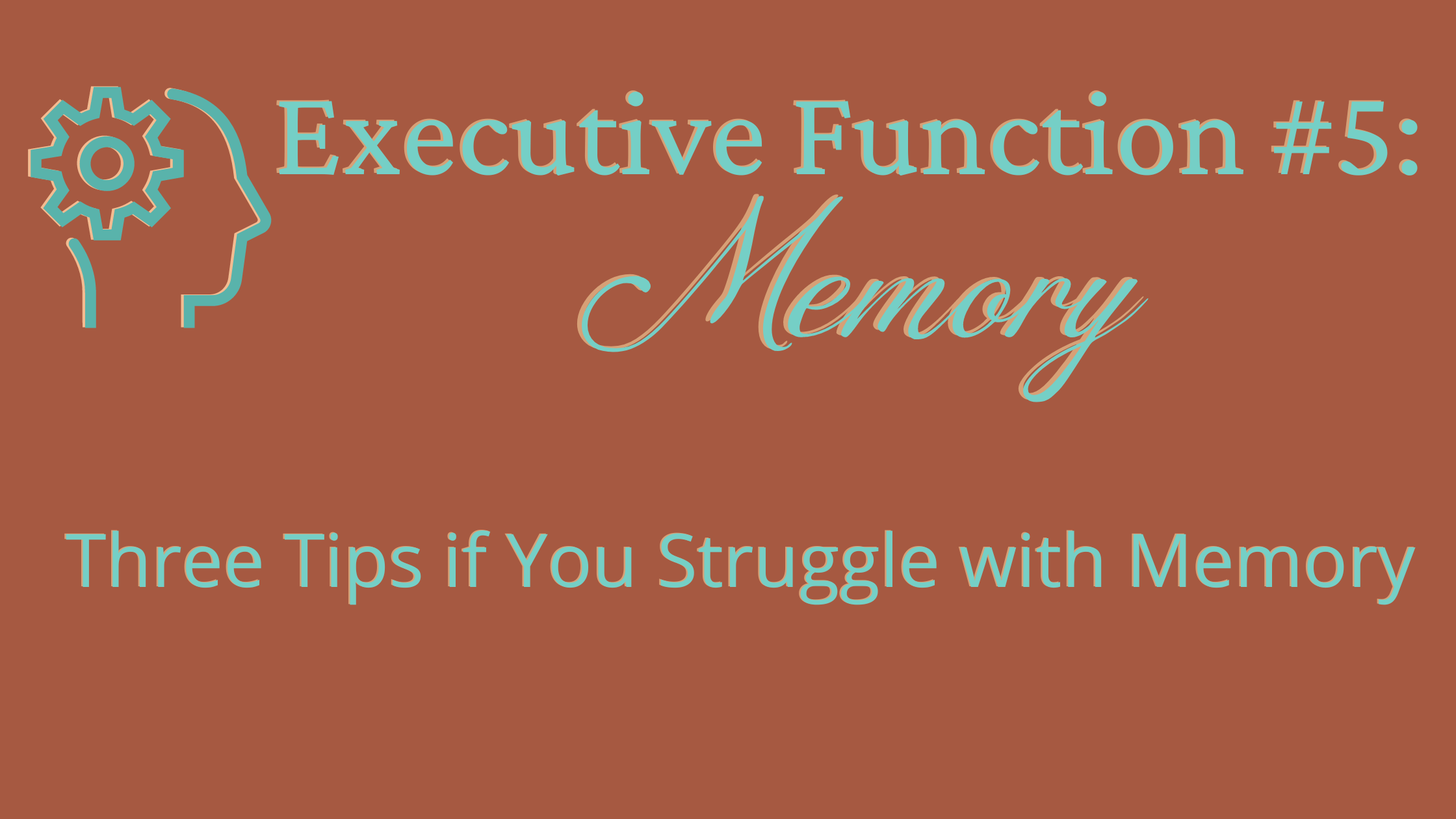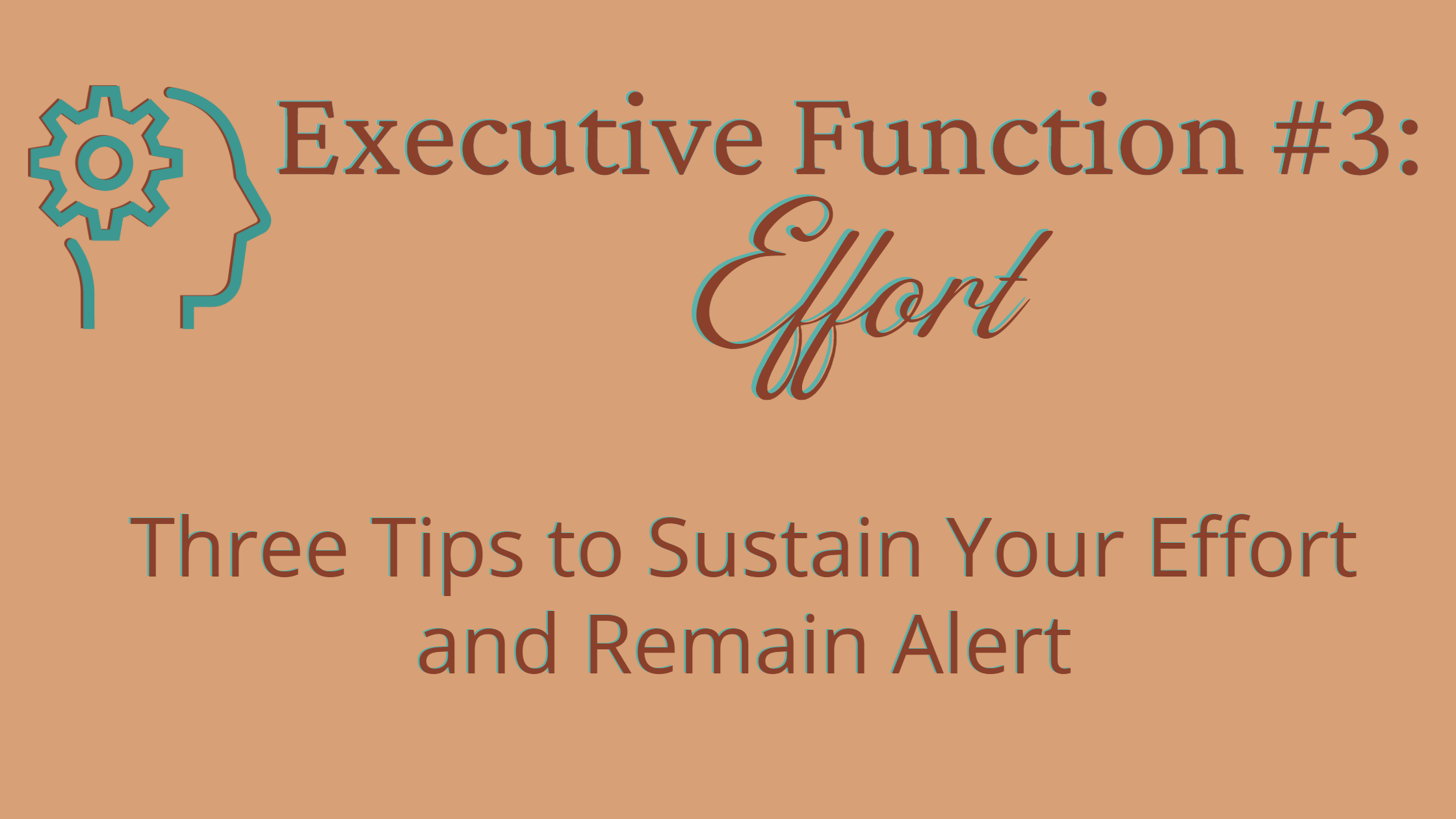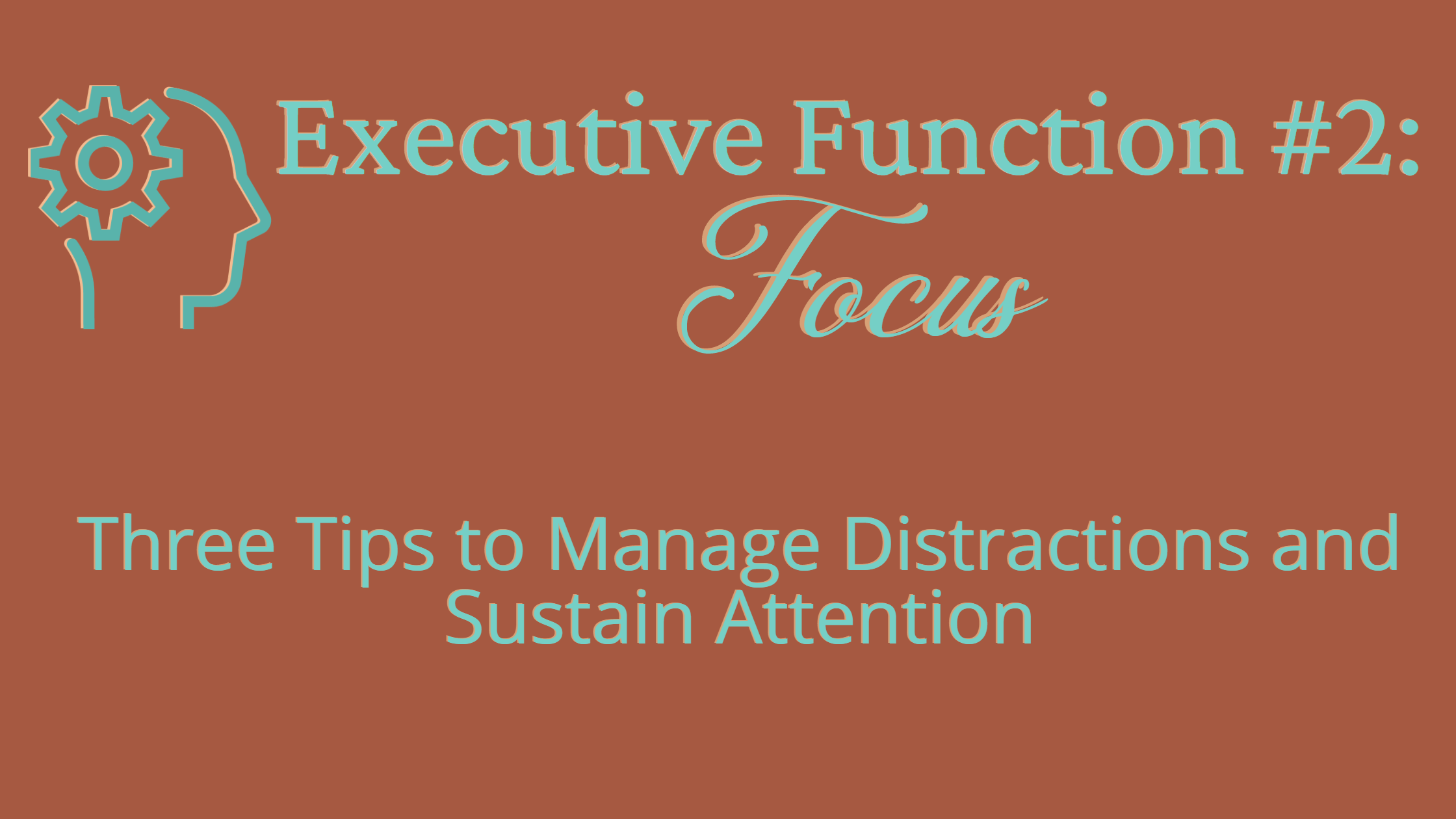When hearing the term ‘ADHD’ most people think of attention, focus and hyperactivity. However, it has much more to do with emotional dysregulation than it does with regulating attention. If you have ADHD, you likely have experienced a flood of emotions – frustration, sadness, even excitement – at some point in your life.
Brown’s 4th executive function is emotion – the ability to recognize, understand and manage your thoughts, feelings and behavior in any given moment. This function is crucial if you need to remain focused and complete tasks. It is also a huge component of maintaining healthy relationships.
When I think back to the early days of my teaching career, I have vivid memories of a couple students who struggled with emotional regulation. We walked on eggshells around them, careful not to say or do something that would set them off. Their frustration could go from 0 to 10 in seconds. A poor grade on a quiz, a negative comment from another student, or the excitement of a birthday party could result in no learning taking place that day. I remember one student who became so angry, he often hid under his desk for up to an hour before he calmed down. He did not like the intense emotions yet he didn’t know how to control them.
Adults tell me that they struggle with receiving feedback, particularly criticism. They are sensitive to doing things wrong (which sometimes leads to perfectionistic tendencies) and hyper-aware of the slightest perceived criticism. They become easily frustrated with situations that others might think are normal or mundane. Or, the intensity of their feelings or behavior doesn’t seem to match the situation.
If you experience emotional dysregulation, it can be helpful to know that it’s related to having ADHD and it’s how your brain is wired. It can also be helpful to try one or more of the following tips…
Pause
Train yourself to pause. Set an alarm and stop to reflect for a few seconds throughout the day. (You may need reminders for a while until this becomes a habit). Pause before responding to a comment or to an email. Think of a couple responses that you can always say and that allow you time to think (“Let me check and get back to you” is a good one). The impulsive side of ADHD would have you react before thinking, leading to emotional floods. Pauses give you the opportunity to choose a different course of action.
Use Humor
Research shows that laughter makes us feel good and there’s no shortage of ways to add humor into your day. You can watch a funny video, read a humorous book, call up a friend that makes you smile. Adding humor into your day will make it easier to recognize and manage the other emotions that also come your way.
Exercise
As with humor, physical activity improves your mood and helps manage emotions as ‘good’ chemicals (endorphins, serotonin) are released into your body. Regular exercise doesn’t have to be strenuous or lengthy. Choose an activity that you enjoy.
Do you struggle with Executive Function #4: Emotion? I’m here for you. Let’s create some strategies to help you identify and manage the emotions that impact your daily life. Schedule a free Discovery Call to see if working together would be a good fit for you.
